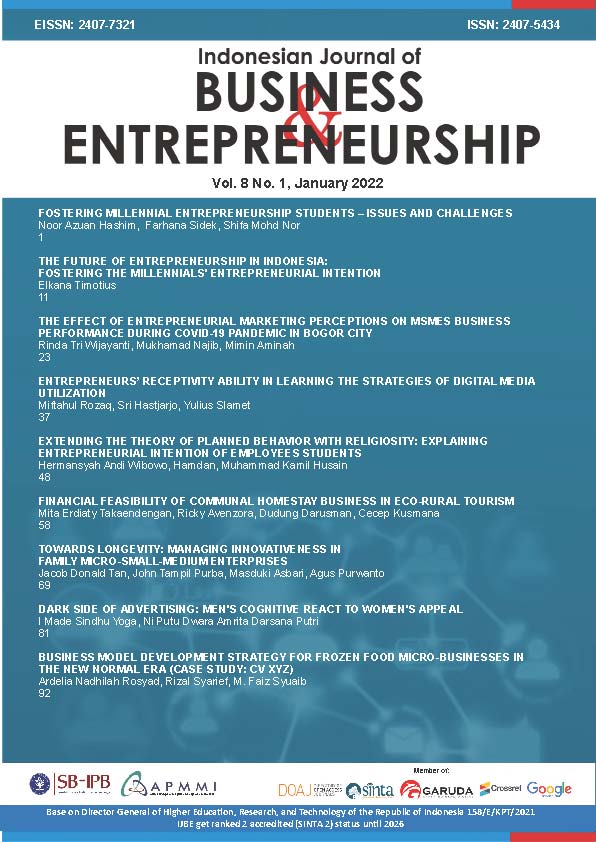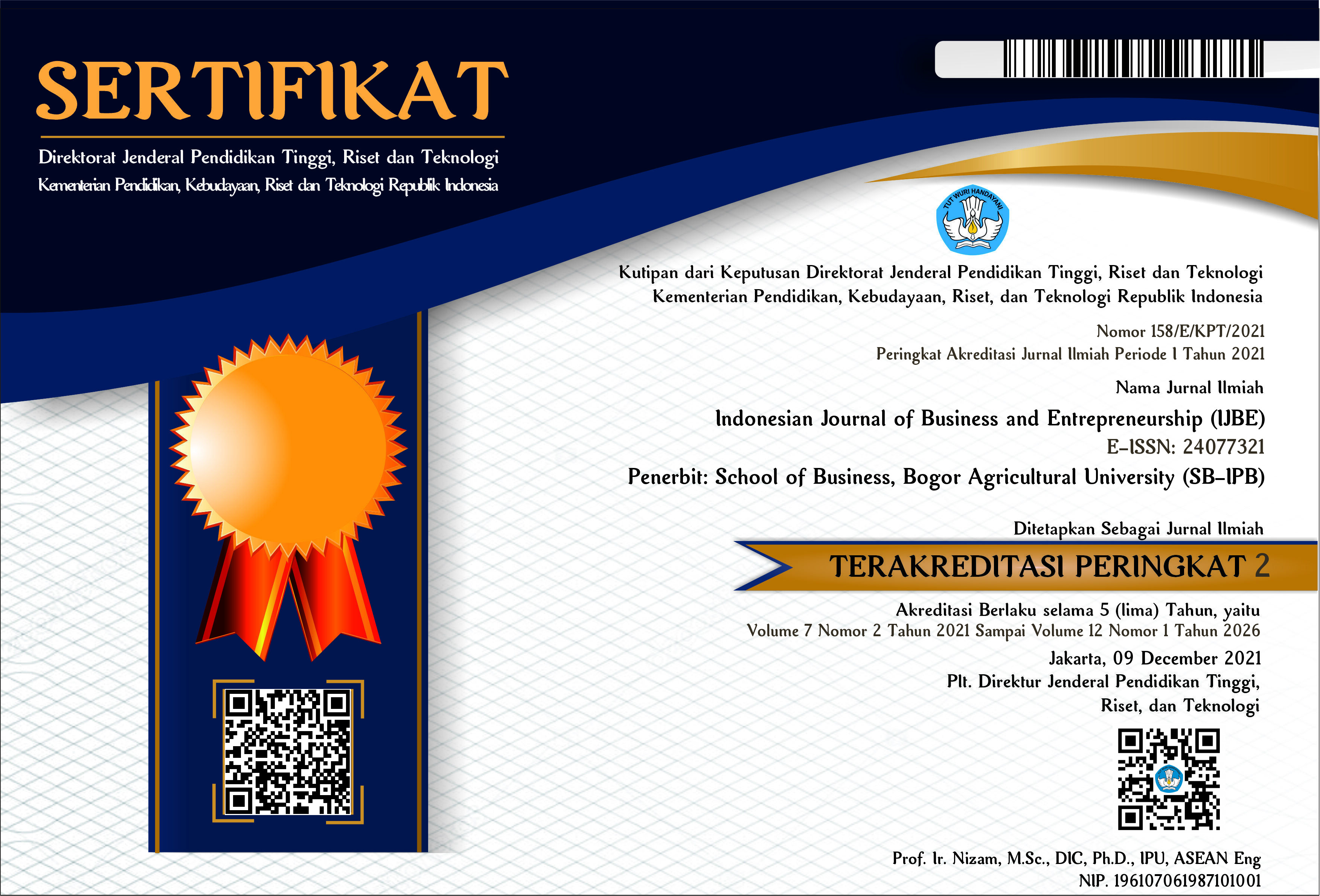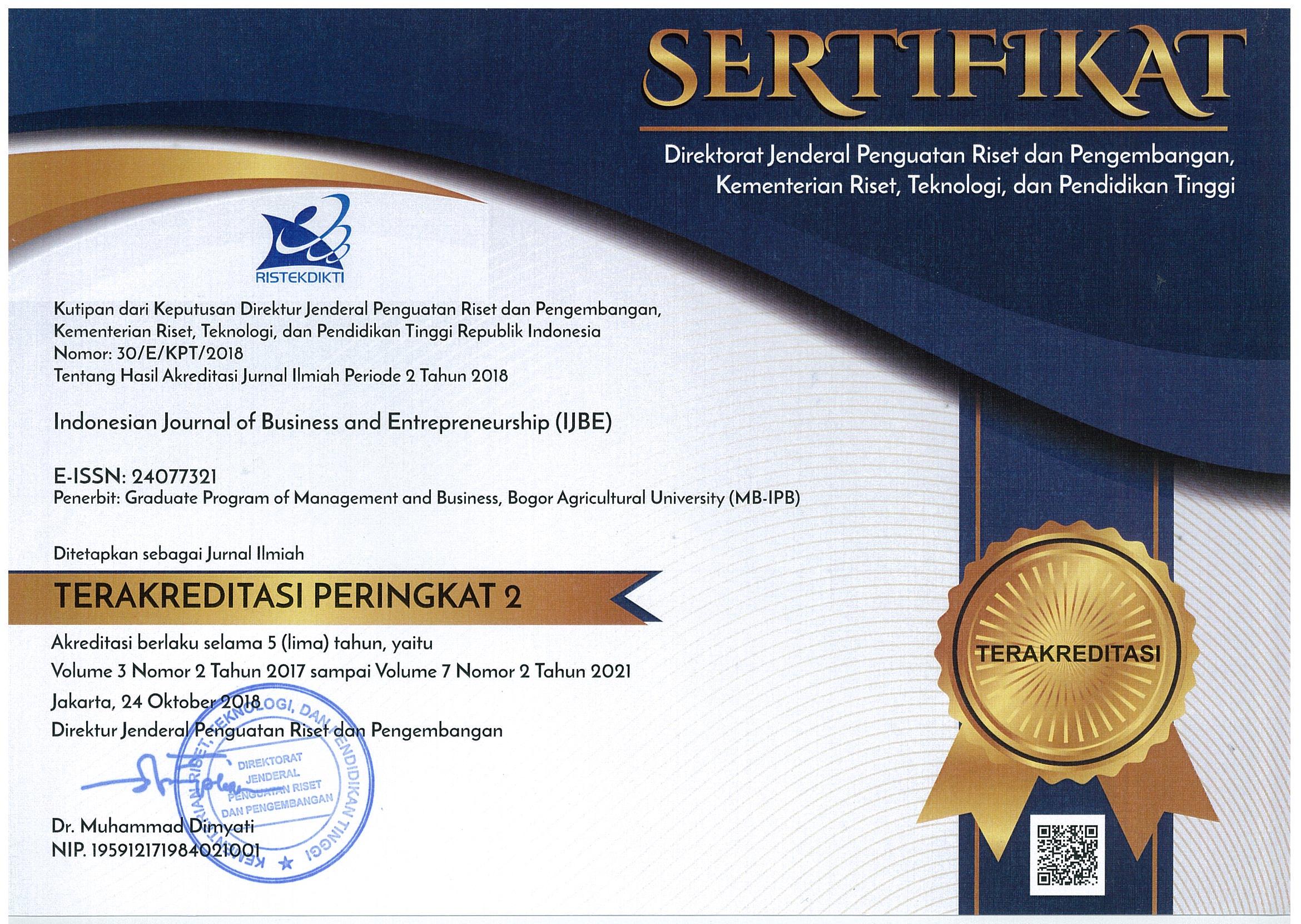Financial Feasibility of Communal Homestay Business in Eco-Rural Tourism
Abstract
Homestay is a type of accommodation suitable to increase demand for rural tourism. A communal homestay is a form of cooperation of homestay that provides better opportunities for local hosts to benefit from the business. This study aimed to analyze the economic potential of the communal homestay business in terms of financial feasibility and multiplier effect analysis. Primary data were obtained using observation techniques, semi-structured interviews and questionnaires. Data were analyzed descriptively, qualitatively and quantitatively. The feasibility of study for the communal homestay business used a feasibility analysis (NPV, BCR and IRR), whereas the economic impact of the homestay business used a multiplier effect analysis. The results of the financial analysis of the communal homestay business in the three study location provinces showed results that were feasible to run. Based on the financial feasibility criteria for the communal homestay business, the IC model had the highest values for NPV, BCR dan IRR (NPV = IDR 1. 140.202.993,00; BCR = 1,28 and IRR = 61,15%). The multiplier effect of the communal homestay business has had a positive impact which is 1.8, on increasing regional economic output in the form of an increase in GRDP and absorption of local workers.
Keywords: tourism village, financial feasibility, multiplier effect, communal, homestay








